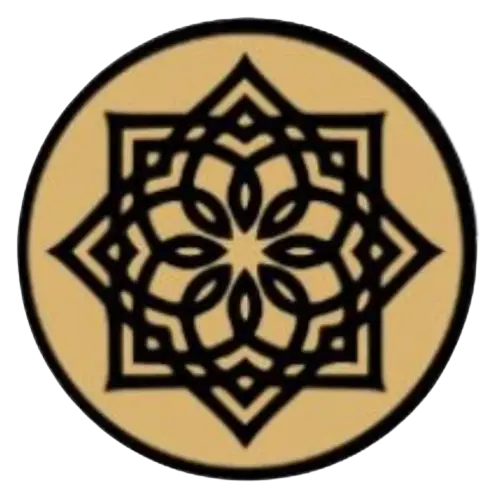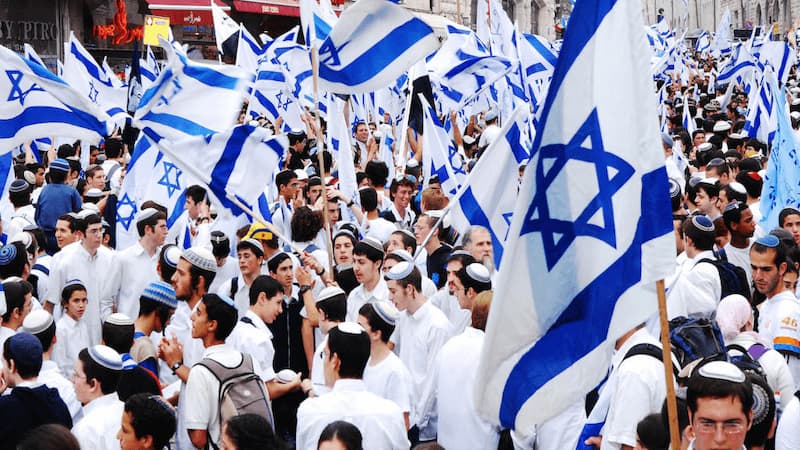A number of Western Sephardi (Spanish and Portuguese) thinkers contributed to the discussion of early Zionism in the 1880s and 1890s. Their voice in that discussion of Zionism added a unique contribution to understand what the function and role of Zionism should be. We will examine the thinking of three North American Western Sephardic leaders, two from the United States, Henry Pereira Mendes and Sabato Morais, and one from Canada, Aaron David Meldola de Sola.
Aaron David Meldola de Sola
Aaron David Meldola de Sola was the eldest son of Alexander Abraham de Sola, who was himself an accomplished haham, and elected minister of Shearith Israel in Montreal in 1846. Meldola de Sola succeeded his father as minister of Shearith Israel and served in that capacity, until his death in 1919. Like his father, he was associated with Orthodox Judaism, against the nascent Reform Movement. He gave an address on the 7th Day of Pesah in 1900 at the Montreal Zionist Society, in which he exhorted the values of Zionism, as he understood it.
He remarks how it is a miracle of history that Israel, the smallest and least significant of ancient nations, lived until the modern time. He cites from perashat Behukotai, in which God promises that he will not reject or neglect his people, even if they live in the land of their enemies.
Leviticus 26:44
וְאַף־גַּם־זֹ֠את בִּֽהְיוֹתָ֞ם בְּאֶ֣רֶץ אֹֽיְבֵיהֶ֗ם לֹֽא־מְאַסְתִּ֤ים וְלֹֽא־גְעַלְתִּים֙ לְכַלֹּתָ֔ם לְהָפֵ֥ר בְּרִיתִ֖י אִתָּ֑ם כִּ֛י אֲנִ֥י יְהוָ֖ה אֱלֹהֵיהֶֽם׃
Yet, even then, when they are in the land of their enemies, I will not reject them or spurn them so as to destroy them, annulling My covenant with them: for I the LORD am their God.
The survival of the Jewish Nation until modern times proves that this prophecy is indeed true. The Jewish Nation has been in exile for thousands of years, from its homeland in Eretz Yisrael. Meldola de Sola sees this as God’s hand, keeping the Nation intact.
Other prophecies note God’s protection of the Jewish Nation, as Meldola de Sola notes, in Deuteronomy, God promises that he will gather the Jewish Nation back to its land, even if it is spread to the “ends of the earth.” The dispersion of Jews throughout the world had indeed happened, with Jews living throughout the world in all corners of the globe. The prophecies in the Torah have been the hope of the Jewish Nation for its many years traversing the earth.
Deuteronomy 30:4-5
אִם־יִהְיֶ֥ה נִֽדַּחֲךָ֖ בִּקְצֵ֣ה הַשָּׁמָ֑יִם מִשָּׁ֗ם יְקַבֶּצְךָ֙ יְהוָ֣ה אֱלֹהֶ֔יךָ וּמִשָּׁ֖ם יִקָּחֶֽךָ׃
Even if your outcasts are at the ends of the world, from there the LORD your God will gather you, from there He will fetch you.
וֶהֱבִֽיאֲךָ֞ יְהוָ֣ה אֱלֹהֶ֗יךָ אֶל־הָאָ֛רֶץ אֲשֶׁר־יָרְשׁ֥וּ אֲבֹתֶ֖יךָ וִֽירִשְׁתָּ֑הּ וְהֵיטִֽבְךָ֥ וְהִרְבְּךָ֖ מֵאֲבֹתֶֽיךָ׃
And the LORD your God will bring you to the land that your fathers possessed, and you shall possess it; and He will make you more prosperous and more numerous than your fathers.
Moses the great legislator lays out clearly the future, that the Jews will once again possess the Promised Land. This is the basis of Zionism for Meldola de Sola, the biblical promise, given to the Jewish Nation by God through Moses. This scriptural emphasis is something that is found in the thinking of all of these Western Sephardic rabbis [ministers, in Western Sephardic parlance].
The hope of an eventual restoration of ancestral land in Eretz Yisrael has guided Jews throughout the generations, as Meldola de Sola notes. He references the end of the Haggadah shel Pesah, “next year in Jerusalem.” The fact of life in the Diaspora should lead us to pray for redemption, which is also found throughout the liturgy in the siddur, beyond the myriad of references in the Tanakh itself.
But, Meldola de Sola is quick to point out that Zionism, the restoration of Jewish sovereignty to Eretz Yisrael, does not imply that Jews living elsewhere in the Diaspora will lose their citizenship, or engagement, in their native countries. He talks about this by using the phrase, “Palestine is my fatherland. England is my motherland,” to note how Jews throughout the world will interact with Palestine, as a Jewish state is established there. Jews show their love for the fatherland by actively constructing its foundation, to build a Jewish homeland. This point is also stressed by the other thinkers referenced in this essay, both Rev. Mendes Pereira and Rev. Morais do not think that Jews should lose any sense of belonging in their Diasporic countries. The United States, Britain, and other countries, very much remain motherlands in these thinkers’ understanding of the modern Jew’s relationship with his native land and Palestine, as the Jewish homeland.
For Meldola de Sola, Zionism was to be a unifying force in Judaism. He saw it as bringing together the Jewish People in a way that had not occurred, since the Second Temple. In a sense, he was right. Zionism has brought together Jews of all stripes, to work together for a better homeland in Eretz Yisrael. But, Zionism has not been only a unifying force, it has also divided Jews. His high estimation of Zionism led him to consider the organs of worldwide Zionism to a high degree, even referring to the Zionist Congress as a Jewish parliament, and “National Organization of the Jewish People.”
The building of Zion is a gradual process that will take generations to complete, but its completion will lead to the redemption, which will be permanent and affect the entire world: “the day of the Ingathering of the Exiles is as great as the day on which heaven and earth were created” (Pes. 88a, cf. Rashi to Deut. 30:3, “Great is the day of the In-gathering of the Exiles and it will come about with difficulty as though God Himself will be obliged to grasp each one actually in his hand, each one from his place”).
Meldola de Sola finishes his address proclaiming the faith that Zionism proclaims:
“Zionism: A Sermon Delivered by the Rev. Meldola de Sola, of Montreal, on the seventh day of Passover, 5660”
“Zionism is the Jew’s declaration to the world that he has not lost faith in the power and unalterable determination of the Almighty to fulfill his reiterated promise to restore the children of Israel to the land of their fathers. Zionism is a vigorous expression of the Jew’s belief that his people have not preserved for thousands of years, while oppressor after oppressor has been crushed, for so inglorious an end as gradual disintegration at the hands of conversionist missionaries, who, being powerless in manly, straightforward and logical argument, resort to tactics that place a premium upon deceit, falsehood and hypocrisy. Zionism is a proclamation of the Jew’s conviction that while England, the United States, and one or two other enlightened countries uphold the principles of justice and righteousness, the “peace and good-will” preached elsewhere in the name of religion is practised in the form of fanatical intolerance and persecution, and that the only remedy for this survival of medieval bigotry is to secure for the Jewish people a “publicly legally assured home” in the land of their fathers” (p. 12).
We can see that the early voices in Zionism had high hopes for the nascent movement. It was prophetic for them, as it should have been. What isn’t prophetic about the re-establishment of a Jewish state in Eretz Yisrael? But, they had high optimism for the movement and what it could do for Judaism, hoping it to be a unifying force, which it turned out not to be, in one sense. It has divided the Jewish people in many ways, but also been unifying in other aspects. The revival of Hebrew as a spoken language (although it was never truly abandoned), first by Sephardim in Israel and in diasporic conditions, and later by Ashkenazim in pre-Israel Palestine has brought a certain linguistic unity to the Jewish people, to the detriment of Diaspora languages like Ladino, Arabic, and Yiddish. Whether or not this is a good thing depends on how one feels about the Zionist project overall.
Another characteristic of Sephardic Zionists is the way in which Zionism connects with traditional Jewish values of Messianic redemption and the world of halakhic observance. As with other changes in modern Jewish life, the advent of Zionism was not seen as a justification for the abandonment of traditional halakhah and observance, but the flexible approach to halakhah only meant that Zionism and a Jewish state would need to be fit into the halakhic system.









Ohr HaChaim Yomi – Emor